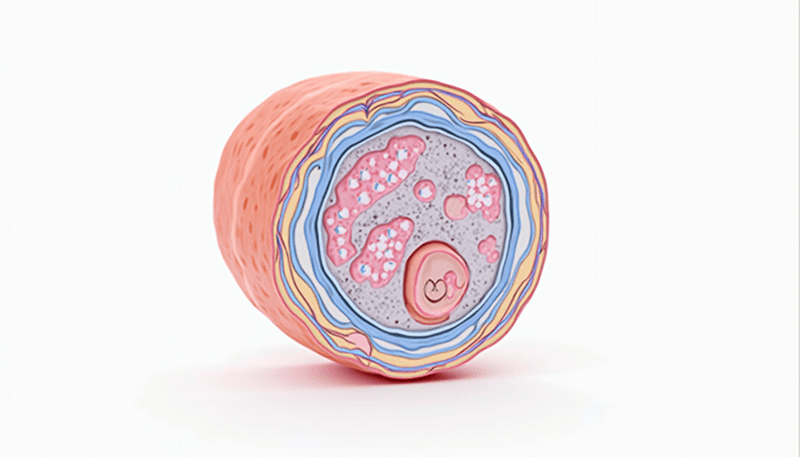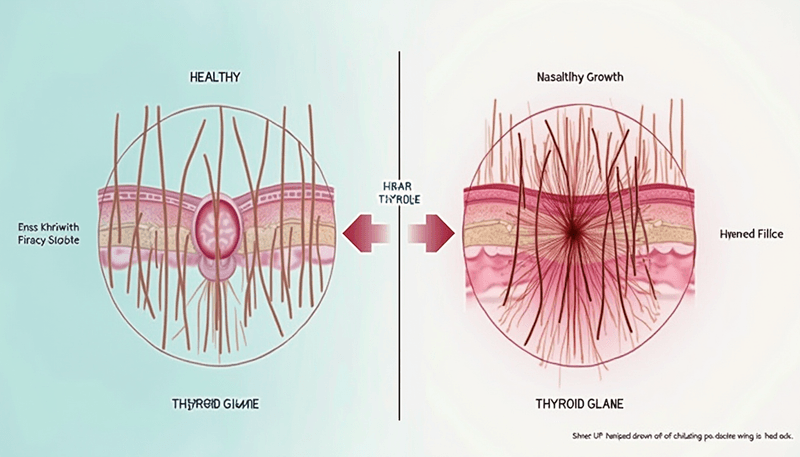Hair Loss: Your Hormones Hold Answers

Have you ever noticed more hair than usual in your shower drain or on your hairbrush? You're not alone. By age 80, the majority of people experience some form of hair loss, and the reasons behind this common concern often trace back to our hormones. A groundbreaking research paper published in Biomedicines reveals the complex relationship between hormones and hair loss, offering new hope for those seeking answers about their thinning hair.
Understanding Your Androgen Balance
Think of androgens as the conductors of your body's hair growth orchestra. While these hormones promote hair growth in some areas, they can actually trigger hair loss on your scalp. The key player here is dihydrotestosterone (DHT), which binds to hair follicles approximately 4-5 times more strongly than testosterone.
Does your family have a history of hair loss? This genetic predisposition might make your hair follicles more sensitive to DHT.
What you can do:
- Monitor changes in your hair pattern, especially if you notice thinning around the crown
- Consider checking your hormone levels, particularly if you experience other symptoms like irregular periods or acne
- Discuss FDA-approved treatments like topical minoxidil with your healthcare provider
- Look into natural DHT blockers like pumpkin seed oil, which has shown promising results with 40% increase in hair count over 24 weeks
The Stress-Hair Connection
Your body's stress response isn't just in your mind - it directly affects your hair follicles. When stress hormones like corticotropin-releasing hormone (CRH) increase, they can push hair follicles from the growth phase into the resting phase prematurely.
Think of your hair follicles as gardens. Just as a garden needs the right balance of water and nutrients to thrive, your follicles need the right balance of hormones. Stress throws off this balance, essentially creating a drought in your hair garden.
When was the last time you noticed increased hair shedding during a particularly stressful period?
Practical steps to manage stress-related hair loss:
- Practice regular stress-reduction techniques like meditation or yoga
- Maintain a consistent sleep schedule
- Consider measuring your cortisol levels through saliva testing
- Look into supplements that support stress management and hair health
Thyroid Health and Your Hair
Your thyroid functions like your body's thermostat, regulating numerous processes including hair growth. Both under- and overactive thyroid conditions can lead to hair loss, but through different mechanisms.
What you should know:
- Hypothyroidism slows down hair follicle renewal
- Hyperthyroidism can cause oxidative damage to follicles
- About 31% of women with pattern hair loss also have thyroid issues
Have you noticed changes in your energy levels or weight along with hair loss? These could be signs of thyroid dysfunction.
Action steps:
- Request thyroid function tests if you're experiencing unexplained hair loss
- Keep track of other thyroid-related symptoms like fatigue or temperature sensitivity
- Work with your healthcare provider to optimize thyroid medication if needed
- Consider lifestyle factors that support thyroid health, such as adequate iodine intake and stress management
As we wrap up our exploration of hormones and hair health, remember that hair loss is often a complex interplay of multiple factors. While it can feel overwhelming, understanding these connections empowers you to take informed action.
The path to healthier hair starts with small steps. Choose one aspect - whether it's stress management, hormone testing, or thyroid health - and begin there. Your journey to understanding and managing hair loss doesn't have to be traveled alone.
What's one step you can take this week to better understand your hair health? Perhaps it's time to schedule that overdue health check-up or start a stress-reduction practice.

Dr. Marcus Anthony Bennett
Dr. Marcus Bennett is a Seattle-based freelance medical writer and consultant specializing in mid-aged women's health. With a background in internal medicine and over a decade of experience in preventive care, he is dedicated to making complex health topics accessible. Dr. Bennett completed his MD at Johns Hopkins School of Medicine and residency at the University of Washington. His empathetic and evidence-based approach combines traditional medical expertise with a focus on health disparities, often incorporating practical lifestyle advice. Known for his clear, engaging communication, Dr. Bennett provides actionable insights to empower his audience.






